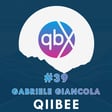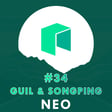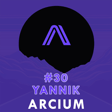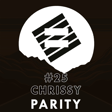
#43 - Decentralization, Polkadot & AI: How Switzerland’s Crypto Valley Shapes Web3’s Future
Bill is the Director of Education and Governance Initiatives at the Web3 Foundation. Kori is the Chief of Staff & Strategic Growth Advisor at Parity Technologies, driving strategic initiatives for Polkadot’s ecosystem growth.
Switzerland’s Decentralized Governance Model
Bill highlighted Zug (or “Crypto Valley”) as a hub for blockchain projects like Ethereum and Web3 Foundation, attributing its appeal to flexible local regulations and a culture of direct democracy. Switzerland’s cantonal system allows cities and states to set their own laws, creating an environment where experimentation thrives. Kori noted Zug’s emergence as a crypto epicenter since 2017, hosting conferences and startups that leverage Switzerland’s decentralized ethos.
This model mirrors blockchain principles: decision-making through referenda ensures transparency, contrasting sharply with centralized systems. Bill drew parallels to Polkadot’s on-chain governance, emphasizing accountability and community input.
Polkadot’s Vision and Governance
Polkadot’s architecture took center stage, with Bill explaining its relay chain and parachain structure. Unlike monolithic blockchains, Polkadot enables interoperable, specialized chains secured by a shared network. This design, he noted, solves scalability and fragmentation issues plaguing ecosystems like Ethereum.
Kori emphasized Polkadot’s use-case agnosticism, supporting applications from DeFi to gaming. Bill highlighted governance innovations like proxy accounts and time-delayed transactions, which mitigate risks like hacks or errors. Both stressed Polkadot’s open-source ethos.
Challenges in Blockchain Accessibility
The conversation shifted to onboarding challenges. Bill acknowledged the overwhelming complexity for newcomers, urging curiosity and vertical-specific exploration (e.g., DeFi, gaming). Kori advocated focusing on Web3’s broader vision—decentralizing power and ownership—rather than technical minutiae.
User experience remains a hurdle. Bill cited Polkadot’s social recovery systems and proxies as steps toward user-friendly solutions. Both agreed that abstracting technical complexity (e.g., account abstraction) is critical for mass adoption.
AI and Web3: Opportunities and Risks
Kori raised concerns about AI centralization, advocating for Web3’s decentralized frameworks to ensure transparency and accountability. Bill contrasted AI’s “hallucinations” with blockchain’s immutability, proposing hybrid use cases (e.g., zero-knowledge proofs to verify training data).
The pair critiqued AI’s ethical pitfalls, such as biased algorithms and data monopolies. Kori stressed cross-industry collaboration, while Bill envisioned blockchain as a counterbalance to centralized AI control, ensuring verifiable processes.
Innovative Projects
Bill spotlighted Acurast, a decentralized compute network repurposing idle mobile devices for efficient, low-cost processing. Kori highlighted Mythical Games, a Web3 gaming leader migrating to Polkadot, citing its NFL Rivals and FIFA partnerships as proof of scalable blockchain gaming.
Upcoming Polkadot upgrades were also discussed. Bill teased Polkadot 2.0, featuring elastic scaling and faster block times.
Visit W3f Follow Bill Follow Kori
This podcast is fuelled by Algorithmic Cryptocurrency Trading Platform Aesir. Use code AESIRPOT20 at checkout for 20% off on all subscription plans, forever at aesircrypto.com



















